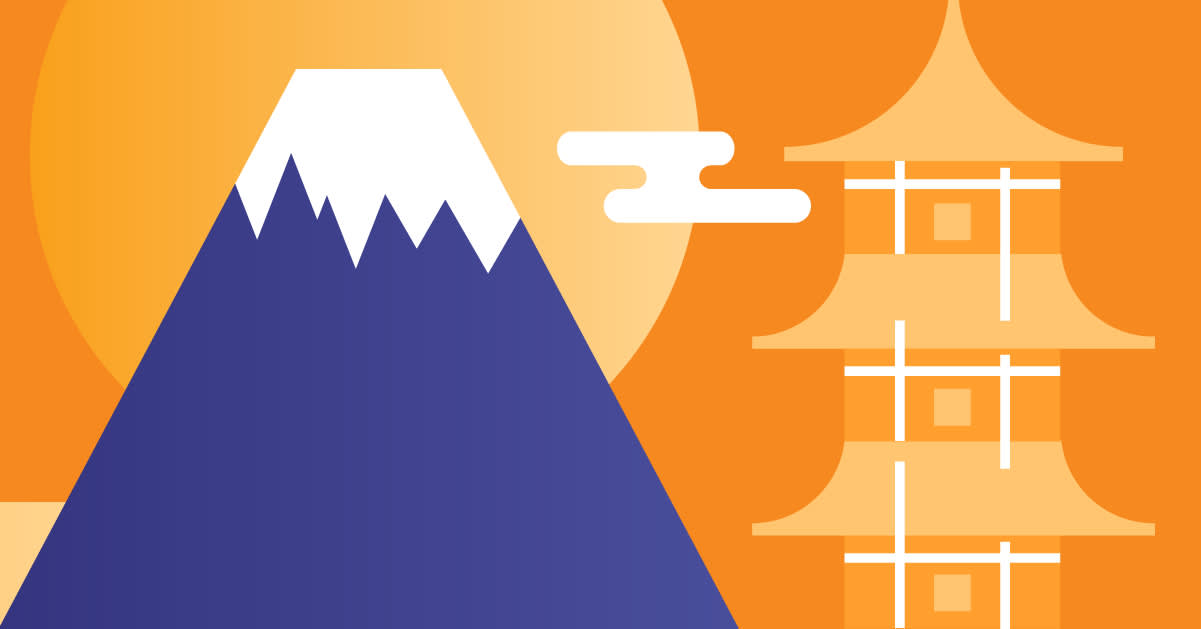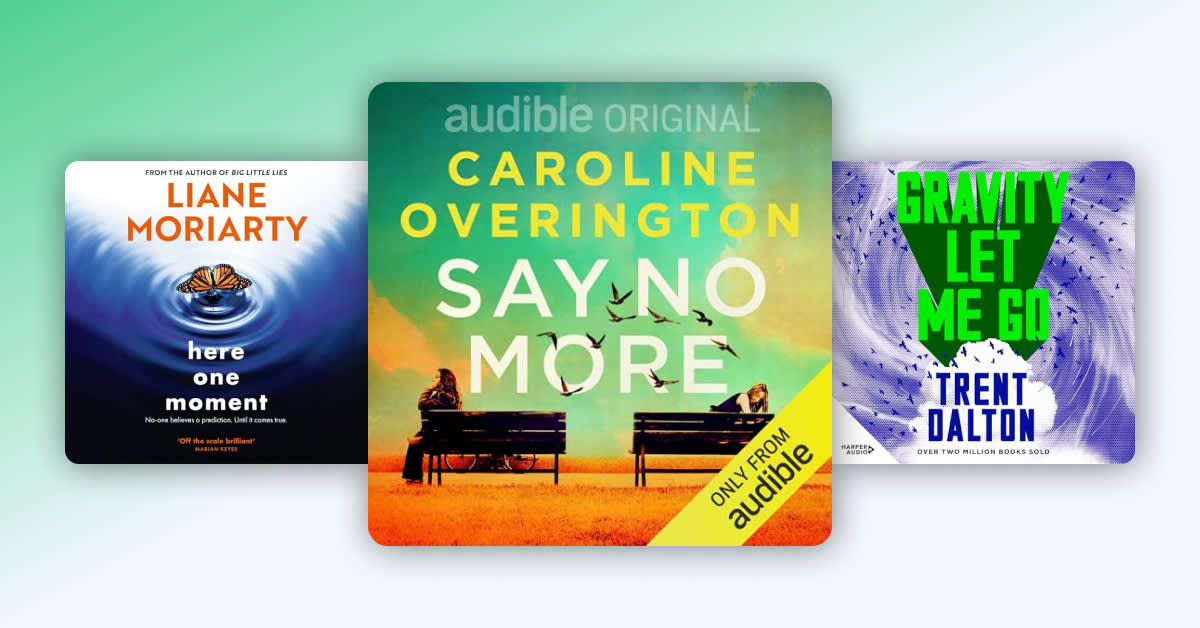This post was originally published on Audible.com
Thanks to the work of translators and publishers, Japanese literature is now more accessible than ever to English-speaking audiences. If you'd like to learn more about Japanese culture and literature, you cannot go wrong with listening to audiobooks from Japan. We've compiled a list of the most famous Japanese authors who have helped define Japanese literature, and their notable works. Collectively, these Japanese authors have written across genres and time periods to create a diverse, fascinating body of work.
Haruki Murakami
Arguably one of the most well-known Japanese authors to English speakers, Haruki Murakami has written more than 20 novels, short story collections, and nonfiction titles. Born in 1949 in Kyoto, Murakami published his first novel in 1979—one year he was hit with an epiphany while watching a baseball game at Jingu Stadium. He has gone on to have a dynamic career, winning awards in Japan and internationally, including the Jerusalem Prize. His work has been translated into more than 50 languages. Murakami is a fan of jazz music (he and his wife once ran a jazz bar), and owns more than 10,000 records that he listens to while writing. His most notable works include 1Q84, Killing Commendatore, The Wind-Up Bird Chronicle, and Kafka on the Shore.
Kōbō Abe
Kōbō Abe was a Japanese poet, essayist, playwright, and novelist. Born in 1924, he moved frequently between Tokyo and Manchuria in his early years. This rootlessness had a profound effect on Abe and later on his writing. He enrolled in medical school in 1943 because medical students were exempt from military work, and survived World War II without having to fight. But medicine wasn’t his passion, and after he graduated he went on to write poetry and plays, and married a stage director. He began publishing surrealist novels, many of which were influenced by his time in Manchuria, and became very politically active at the time. As a staunch pacifist, Abe was drawn to and joined the Communist Party; when he saw how the Party treated poor workers, he broke with them. His books and plays have been translated into English, including The Ruined Map, Secret Rendezvous, The Box Man, and The Face of Another. But it was The Woman in the Dunes, published in 1962, that proved to be Abe’s international breakout hit. He died in 1993 in Tokyo.
Banana Yoshimoto
Notoriously private, Banana Yoshimoto is a notable writer born in 1964 to a liberal family of artists and writers. She was only 23 when her first novel, Kitchen, was published. It was very well received, winning her the 6th Kaien Newcomers’ Literary Prize and gaining her national and international recognition. She went on to write 12 more novels and essay collections, and her work was produced into Japanese TV shows and movies. Yoshimoto’s work often deals with youth, existentialism, and how tragedy can shape our lives. She is also a big fan of food (as her chosen name, Banana, may reflect) and has been praised for writing without pretension. Her characters tend to be young, but her writing appeals to all ages, as evidenced by her enormous success.
Yōko Ogawa
Born in 1962, Yōko Ogawa is the prolific author of more than 40 works of fiction and nonfiction. However, only a small fraction of her work is available in English. Although written in the 1990s, her most recent title to be translated into English is The Memory Police—a science-fiction novel about a novelist who lives on an island where an authoritarian government rules and objects are disappearing. It was a National Book Award finalist for translated literature in 2019, and is narrated by Traci Kato-Kiriyama. Ogawa’s books have also won every major award in Japan.
Sayaka Murata
Although she only has one book available in English, Sayaka Murata has written 10 books that are immensely popular in Japan. Born in 1979, she was an early and avid reader of science fiction and mysteries, and her mother supported her writing from a young age by buying her a word processor. She first published in 2003 and began to win awards immediately. Murata has received the Gunzo Prize for New Writers, the Mishima Yukio Prize, and the Akutagawa Prize. She’s written across genres, but her books tend to look at society, conformity, and human behavior that she has observed in her job as a part-time convenience store clerk. Her first novel translated into English is Convenience Store Woman, which is narrated by Nancy Wu. Her second novel to be translated in English is Earthlings.
Yukio Mishima
Often regarded as one of the most important Japanese writers of the 20th century, Yukio Mishima is also a controversial figure. Born in 1925, he had an unconventional upbringing. His early writing endeavors were not supported by his father, although his mother often encouraged him. He went on to write and publish 34 novels, 50 plays, and numerous short stories. He even wrote and directed a handful of films and worked as a model. He escaped serving as a soldier during World War II, due to illness, but his nationalism was often polarizing. In 1968 he founded the Tatenokai, a private military force meant to protect the emperor of Japan. In 1970, he and three members of the Tatenkokai attempted a coup d'etat to restore power to the emperor, and when it failed, he performed a ritual suicide. Mishima was very widely published in English and well-regarded in the Western world during his lifetime. His most famous books include The Sound of Waves, Spring Snow, The Temple of the Golden Pavilion, and The Sailor Who Fell From Grace With the Sea.
Keigo Higashino
Keigo Higashino, born in 1958, is not only one of the most famous mystery writers in Japan, but in all of Asia. He went to school to study electrical engineering but started writing in high school and never stopped. Even after school, while working as an engineer, he would write on nights and weekends and submit his stories to the Edogawa Rampo Prize. He took the prize in 1984, and gave up engineering to become a full-time writer. Nearly every one of his novels has been made into a TV show or movie in Japan, and his book Naoko was made into a film starring David Duchovny, called The Secret. His English translations include The Devotion of Suspect X and Salvation of a Saint. The Devotion of Suspect X was made into a TV show that’s now available to stream on Amazon Prime.
Tirzah Price is a writer and contributing editor at Book Riot.




